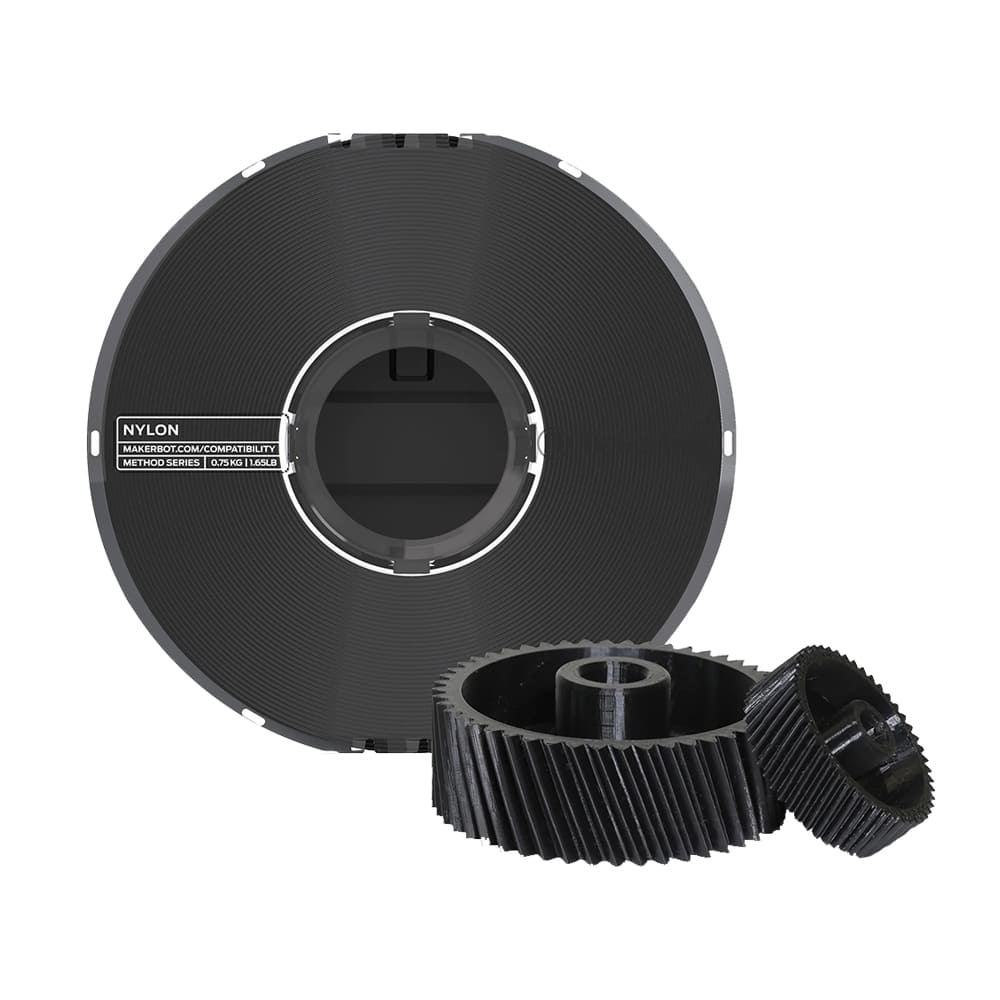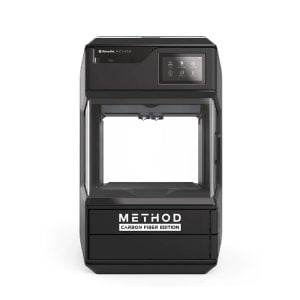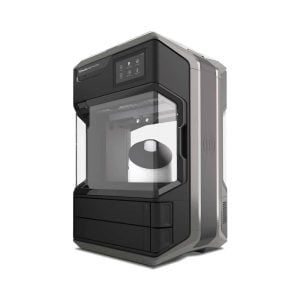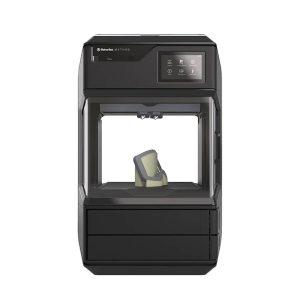MakerBot Speciality Nylon (PA) 1,75 mm Black 0,69 kg
MakerBot offers a range of high-quality 3D printing filaments, each with its own unique properties and characteristics. MakerBot filaments are renowned for their quality and reliability, and are designed for use in the most demanding industrial applications.
Here are some of the key benefits of MakerBot Specialty Nylon (PA) filament:
Strength and durability: nylon is known for its high strength and durability. It also offers exceptional tensile strength, enabling the production of robust and reliable 3D printed models.
High temperature resistance: Speciality Nylon (PA) filament has good high temperature resistance, allowing printed items to withstand higher temperatures without deforming. It has a relatively high glass transition temperature (Tg), typically around 90 °C to 100 °C, depending on the specific formulation.
Impact strength: MakerBot Speciality Nylon (PA) filament is also known for its excellent impact strength, making it suitable for parts that may be subjected to high loads or impacts during use.
Chemical resistance: Nylon is inherently resistant to a wide range of chemicals, including oils, greases, alcohols and some solvents, making it suitable for applications where contact with a variety of substances is expected.
Low friction: it has a low coefficient of friction, which means 3D printed models can glide and move smoothly on other surfaces. This property makes it suitable for applications requiring low friction, such as gears, bearings and sliding mechanisms.
3D printing: MakerBot Speciality Nylon (PA) filament is designed for reliable and consistent 3D printing. It has good layer adhesion, minimal curl and good interleaving, resulting in high-quality prints with excellent dimensional accuracy.
Post-treatment: nylon allows various post-treatment techniques, such as sanding or painting, to achieve the desired finish and aesthetic properties.
It is important to note that specific recommendations and settings for 3D printing may vary depending on the 3D printer model, nozzle size, etc. It is always advisable to refer to the manufacturer’s guidelines or datasheet for detailed instructions and parameters for 3D printing.
Features:
- Deformation (softening) temperature: 91°C
- Bending modulus (ASTM D790, 15 mm/min): 1,700 MPa
- Tensile strength (ASTM D638, 50 mm/min): 66 MPa
- Tensile modulus (ASTM D638, 50 mm/min): 2,200 MPa
- Elongation at break: >10%
- Impact strength (ASTM D256): 187 J/m
- Filament diameter: 1,75 mm
- Net weight: 0,69 kg
3D printer compatibility:
Extruder compatibility:
Supporting material:
- PVA























Reviews
There are no reviews in english yet.